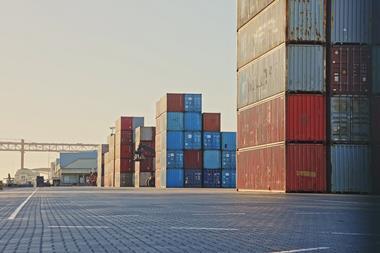One of the key challenges the air cargo industry faces when it comes to the Covid-19 vaccine supply chain is ensuring there is enough temperature-controlled capacity at airports.
However, building these facilities costs money and takes time. Under normal circumstances handlers would also want to secure a return on their investment.
But with the Covid-19 vaccine there are still many questions that need to be answered before cargo handlers have enough information to decide whether they need to upgrade and expand existing facilities.
Time is also of an essence as a vaccine could be launched early-mid 2021 and these facilities can take some time to be developed.
So how can the industry combat this conundrum? This was one of the questions that participants from the joint TIACA and Pharma.Aero project Sunrays Project press conference looked to tackle.
Cargo handler SATS' senior vice president cargo services, Cheemeng Wong, pointed out that temporary infrastructure could be put in place to meet some of the requirement.
He said: "If the prediction is correct and 9bn vaccines are needed to be carried but are spread out evenly over every month of the year, then there is no peak demand and if there is no peak demand then the urgency or need to invest more in permanent infrastructure will be less. But if the demand is generated consistently over the next couple of years then the service provider will be more prepared to invest.
"If this is just one off then the service provider can have temporary measures put in place to increase, refrigerated containers for example, to temporarily increase the capacity," he said.
Neel Jones Shah, global head of airfreight at freight forwarder Flexport, added that companies were not going through the usual investment process given the urgent nature of the need.
"The traditional return on investment calculation is being thrown out the window here," he said. "Companies aren't going through this mental math to figure out if this investment is going to have five, 10, 20 year pay off.
"Right now, a lot of companies are answering the call to save humanity, for want of a better word, and to solve this problem."
He added: "In many parts of the world governments are stepping up and giving fairly large grants to help fund some of the investment that is going to be needed to get this off the ground.
"And UPS and FedEx are spending millions building freezer farms at their hubs to handle these super cold temperatures. I don't think there has been a lot of chief financial officer involvement in the investments because at the end of the day the governments are going to end up footing the bill to get this distribution network in place."
Nathan De Valck, Brussels Airport head of product and network development and chair of Pharma.Aero, said there is latent capacity in existing infrastructure that can be utilised through increased visibility.
He explained that by working with the shippers and using the right type of packaging, existing infrastructure can be optimised and stock can be built up where there is more capability.
"It is really about creating that transparency in capabilities in the various steps in the supply chain and optimising it as a total community."
As part of the Sunrays Project, a survey was carried out to identify the main areas of concern for both shippers and the air cargo sector.
It revealed that just 28% of the industry feels well prepared for a Covid-19 vaccine.
It also identified what vaccine shippers want: speed, security, reliability and transparency. And what freight industry expects from shippers in order to prepare: product specification, size and packaging, volumes, geographical information and a list of monitoring devices.
Emir Pineda, from Miami Airport and Sunrays Project lead, said that the time had come for the industry to issue a call for action.
"In the area of industry collaboration, vaccine manufacturers should involve all their cargo logistics providers as early as possible," he said.
"All cargo stakeholders should be involved in the conversation, including airports and ground handlers, who don't want to repeat the mistakes of the past.
"When it comes to visibility and transparency, the use of tracking and monitoring devices should be encouraged and the approval process for their safe use in flight needs to start immediately.
"The roll out of digital solutions and data sharing platforms should be accelerated. We also need to scale up the capabilities of the industry.
"Each air cargo stakeholder should map its existing capabilities at each location and make this information available. Dry ice, active containers, trained staff and cold chain space availability should be secured early.
"Infrastructure investment decision should be made as early as possible. Airfreight needs support from regulators, governments, customs authorities and border agencies, which should be ready to facilitate and expedite all Covid-19 vaccine-related merchandise."















